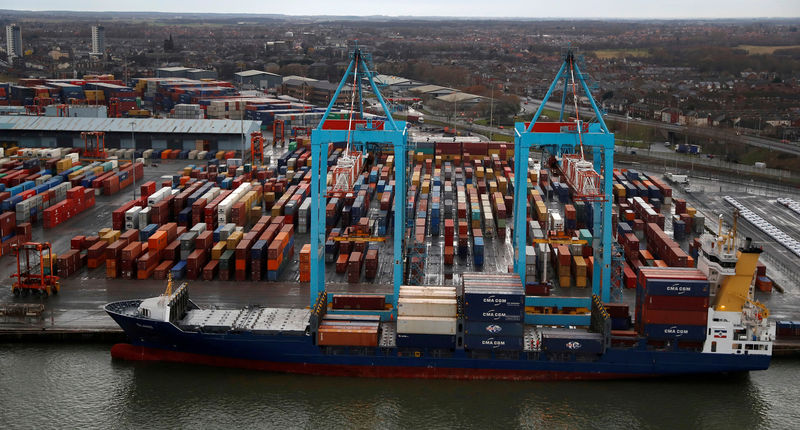By Susanna Twidale
LONDON (Reuters) - The aviation and shipping sectors should formally be included in Britain's target to cut its greenhouse gas emissions to net zero by 2050, the government's climate advisers said on Tuesday.
Britain earlier this year became the first G7 country to set a net zero emission target although the shipping and aviation sectors were not explicitly included in the goal.
Combined the two sectors account for around 5% of global greenhouse emissions but if left unchecked this is expected to grow significantly, particularly as passenger flying numbers increase.
"Now is the time to bring the UK's international aviation and shipping emissions formally within the UK's net-zero target. These are real emissions, requiring a credible plan to manage them to net-zero by 2050," Chris Stark, chief executive of the Committee on Climate Change (CCC), said in an email.
The CCC said, in a letter to Britain's transport minister, Grant Shapps on Tuesday, emissions from aviation could be reduced by around a fifth by 2050 by using sustainable biofuels, improving fuel efficiency and limiting demand growth to at most 25% above current levels.
It said zero-carbon aviation is unlikely to be feasible by 2050 and that greenhouse gas removal methods would be needed to offset remaining emissions.
The CCC said the government said could establish a market for scalable greenhouse gas removal solutions, such as bioenergy carbon capture and storage, which sees emissions from lower carbon biofuels captured and stored to prevent them going into the atmosphere.
In the shipping sector zero carbon or near zero carbon could be feasible by 2050 the CCC said, if there is a widespread adoption of cleaner and as yet mostly so far untried fuels such as hydrogen or ammonia.
The CCC advice came as several ports, banks, oil and shipping companies on Monday launched an initiative which aims to have ships and marine fuels with zero carbon emissions on the high seas by 2030.
The International Civil Aviation Organization has committed to a target of halving net emissions by 2050, compared to 2005 levels and is working on a Carbon Offsetting and Reduction Scheme for (CORSIA) which requires most airlines to limit emissions or offset them by buying credits from environmental projects.

The CCC, which is independent of the government, is chaired by former British environment secretary John Gummer and includes business and academic experts.